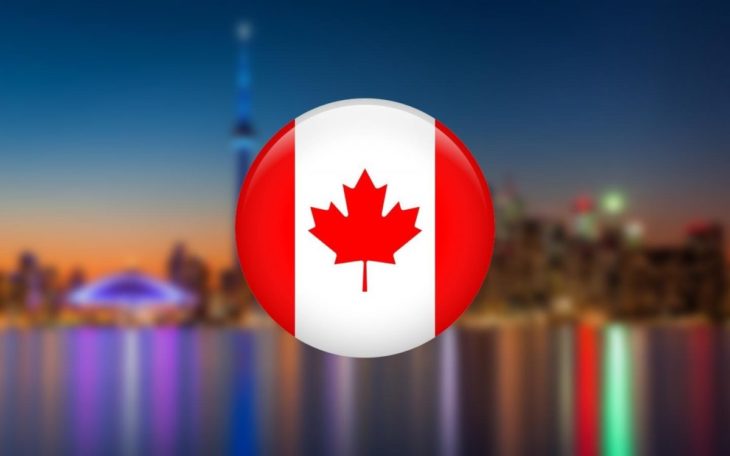Canada and the United States of America indeed have a common border. Yet, these two neighbors have some differences when we talk about gambling.
Logically, the attention of the gamblers is mostly focused on the USA. This fact doesn’t need to surprise us because of one obvious reason. Canada does not have Las Vegas. Yet, it is a big mistake if you believe that having fun and making money is not possible in their neighbor to the north.
Many things have changed in Canada when we talk about gambling. Of course, different provinces in Canada have different laws and we will explain them later. However, the entire casino law is constantly making progress. According to CanadianCasinos.ca, you can now find banks that allow online gambling. Something like this was not possible many years ago.
We want to explain to gamblers that Canada also deserves their attention. Of course, your gambling needs to have limits as well. Do not go to Canada to spend all the money that you brought.
Let’s analyze in detail the gambling in this state together.
Contents
Short History of Canadian Gambling

Source: nexter
We need to say a couple of words about gambling history in this country. It has three different periods. Until the 1970s, the gambling was completely illegal in this country. Everything started to change in the 1970s. During these years, the gambling was legalized by law. In 1985, each province and territory got the right to oversee gaming activities.
Believe it or not, each province has a Lotteries Review Committee. This committee invites local residents to attend a public meeting. They use this event to organize the revenue raised from gambling. Until now, people invested millions of dollars in different fields like education, health, etc.
Online Gambling

Source: curiocity
Well, the number of “traditional” casinos among Canada is huge. Yet, many people like to gamble in privacy. Because of that, they rather choose to gamble online. It is much easier for them to concentrate in the comfort of their room.
There are a couple of reasons why online gambling is becoming more and more popular. The main reason is – convenience. Despite that, a huge number of games are available online and the number of user-friendly platforms is growing. Many online casinos offer welcome bonus packages for new players. Because of that, we can say that using online casinos is much easier for beginners.
You probably concluded that online gambling in Canada is completely legal. Many provinces around the country run their online casinos. Every person has the chance to place wagers through different government-approved betting outlets.
Still, it is good to mention that you need to be careful. You should check first if your online casino meets all the law requirements. The first one is to have a license, logically.
As we said in the beginning, some banks support online gambling. Because of that, Canadians have the option to withdraw their money in Canadian dollars. This will eliminate the additional expenses that you can have because of the exchange rates.
Finally, mobile-users are also welcome to play different gambling games online. We know that many people like to lie down in their beds and play different games. The biggest part of online casinos in this state is mobile-friendly.
Different Gambling Options in Different Provinces

Source: gamblingsites
The first question that we often hear is – Are there any age limits for gambling? Well, the gambling age requirements are different in different parts of the country. In most cases, you will have to be older than 19 to visit a casino or gamble online. Still, three provinces allow people older than 18 to gamble as well.
This is the first biggest difference between the US and Canada gambling industry. In almost every part of the US, you won’t be able to gamble if you are not older than 21. We believe that, because of this reason, Canada becomes more attractive for many young people.
Let’s go through different provinces of Canada and see the rules that you should follow.
Ontario

Source: gamblingsites
We will start with the most populated Canadian province. Despite that, in this region, a huge number of people like to gamble. Some stats say that around 90% of the population gambles here at least once a year. The tourists can expect to find two different types of casinos. Of course, online gambling is also a choice, so we can expand those types to three. One part of casinos is owned privately. However, some casinos are run by the government. As we said, the second type of casinos usually invests the revenue of gambling in different fields. This is another huge difference between the USA and Canada.
Anyway, it is good to mention that Ontario possesses one of the biggest lottery networks in North America. Here you can find a huge number of slots in one place. We believe that Ontario is some sort of Canadian Las Vegas. If you plan to come here, then Ontario is the province you should visit.
Quebec

Source: casino
Well, if you prefer to speak French or you do not speak English well enough, this province is for you. This province is a predominantly French-speaking destination. Despite that, the biggest casino in Canada is located in this place and became one of the most popular attractions. Currently, we are talking here about the giant Casino De Montreal. This casino works 24 hours a day, seven days a week.
As we already said, when you turn 18, you are completely free to gamble in online or offline casinos. Of course, you are young, and we do not recommend you visit Casino De Montreal immediately. We suggest some online casinos to understand the true art of gambling.
Nova Scotia

Source: yellowpages
We will end this article with this province because we believe that many Vegas fans are reading it. First of all, it is good to mention that this province has two government-owned casinos. Yet, the main casino is a Vegas-like facility that is located along downtown Halifax’s waterfront. The design of the casino will literally make you feel like you are in Vegas.
Despite that casino, the second one is located in Sydney on Cape Breton Island. Here you won’t be able to find a huge number of slots. Yet, there are games such as Texas Hold’em, blackjack, roulette, etc.
